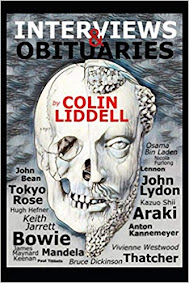by William Fankboner
I found myself not only saddened, but annoyed, at the death of Steve Jobs. Maybe I hadn’t been keeping up, but the last I heard his cancer was in remission. Suddenly all the business columnists and technology insiders were talking as though his passing had been a foregone conclusion. They hadn’t dwelled on the fact in print out of consideration for Jobs and his family. Such reverence is rare in the American press, but it was in Jobs’s case well-earned. He had become the great, long-sought cultural hero of our time.
Not that Steve Jobs was a saint. In fact he could be a ferocious and brutal critic. I saw him explode with the wrath of Zeus on Olympus when a new management hire introduced himself during a company meeting with a bullet list of his professional accomplishments. Jobs angrily dismissed the manager’s résumé as “bullshit,” and said such a conventional skill-set would be of little use in his company.
And he could be vindictive. A distinguished magazine publisher once told me that early in his career Jobs had mounted a furious campaign to have him fired because he had written an unfavorable review of one of his products. Then there was the famous story—probably apocryphal, but no less telling for that—of the time Jobs got on an elevator with one of his employees; and by the time they reached the ground floor the employee had been fired.
We overlook these tiny and not so tiny moral hiccups in his story because of his huge and beneficial influence on the modern world. But I often wonder how well people, even the so-called experts in the business world, really understand his true genius. He is often compared to Thomas Edison, and to his contemporary rival, Bill Gates. In both cases the comparison is grotesquely misleading. Jobs was not a true inventor, like Edison. Take his mouse-driven, graphics-oriented computer, the Macintosh: the software was based upon a suite of technologies from Xerox’s Star workstation, and from mouse technology developed by Douglas Engelbart, a man as obscure as Jobs is famous. That doesn’t seem quite fair. The General Electric company marketed the incandescent light bulb, but we do not identify this technology as an invention of GE, but of Thomas Edison.
The comparison with Bill Gates is more illuminating, mainly for its contrasts. Gates was an actual programmer who wrote an interpreter for the Basic programming language. Jobs dabbled in computer technology, but never mastered it. But Jobs had two important qualities that Gates lacked: Vision and Integrity.
Imagination reaches into the future. Jobs was a true visionary with an infallible eye for superior technology, whereas Bill Gates was largely clueless. When Gates had the chance to do something important, i.e. create a stable multi-tasking operating system based on state of the art technology (the Unix operating system, the Mach kernel, and X-Windows), he yielded to greed, and saddled us with MSDOS and Windows, two notoriously unreliable software platforms that plunged the PC world into 15 years of technological purgatory.
In contrast, Jobs found and implemented the best technologies available, the aforementioned Unix, Mach kernel and X-Windows, which became the foundation for his NeXT computer, and later for OSX.
And why didn't Gates standardize these powerful, time-tested technologies? It was a clear choice between excellence and mediocrity, but Gates embraced the substandard platform because he knew it would guarantee Microsoft’s monopoly on system software for the foreseeable future. With “visionaries” like Bill Gates, the world doesn’t need any robber barons.
When Jobs promulgated specs for “the next great thing” to company engineers, they often pushed back, explaining this or that thing was a technical impossibility, that it couldn’t be done. Jobs refused to accept this: he knew it could be done. Steve Jobs was a distinctively modern thinker and entrepreneur who had something rare, an instinctive understanding of modern scientific method. Modern applied science does not proceed from cause to effect; it works backward, from effect to cause. For example, John and Will Kellogg discovered breakfast cereal by accident when they left some cooked wheat unattended. The meaning of accidental discovery was not lost on philosopher Alfred North Whitehead, who observed that “the great discovery of the nineteenth century was the discovery of the technique of discovery”: you start with an effect and work backwards until you discover the cause that produces the effect. For example, if you are looking for a cure for rosacea, you simply start testing chemical compounds until you find one (Metronidazole) that does the trick. Jobs understood this painstaking empirical techniquewell, and it is why he would tell his engineers to go back to their drawing boards until they got it right.
Steve Jobs’s last years were an existential paradox: at the pinnacle of his career (when he was virtually king of the world), the gods granted him professional immortality; but with imminent corporal mortality starkly prefigured in the background, it must have seemed a problematic honor, perhaps even a curse.
Nietzsche provided cold comfort: “Though the favorites of the gods die young, they also live eternally in the company of gods.” What’s it all about? he must have wondered. I suspect what pleased Jobs most was leapfrogging the state of the art and bringing the miracle of digital technology to millions of users, i.e. bringing home fresh game to the tribe. Steve Jobs said he wanted “to put a ding in the universe,” and he did; but in the final years of his life, he seemed to gain a deeper understanding of what it was really all about, stating that what mattered was not the changes one brought to the world, but the changes that occurred within oneself. May we all pass from the earth with such knowledge and grace.




























No comments:
Post a Comment
Your comment will appear after it has been checked for spam, trolling, and hate speech.